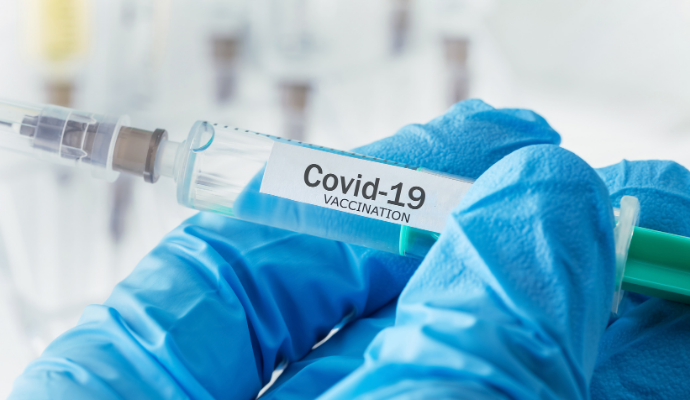Pfizer to Amend Clinical Study of COVID-19 Vaccine in Children
In other COVID news, AstraZeneca’s COVID-19 antibody neutralizes Omicron variant and the European Commission approved GSK’s COVID-19 antibody.

Source: Getty Images
- Pfizer and BioNTech recently announced that they will amend the clinical study evaluating the safety, tolerability, and immunogenicity of their COVID-19 vaccine in children.
The Phase 1/2/3 trial initially enrolled up to 4,500 children aged six months to under 12 years of age from over 90 sites in the US, Finland, Poland, and Spain.
The companies will amend the trial to include a third dose of the vaccine at three micrograms at least two months after the second dose of the two-dose series to provide high levels of protection in this age group.
Adding a third dose reflects Pfizer and BioNTech’s commitment to carefully select the correctright dose to maximize the risk-benefit profile.
The companies will submit data to regulators to support an emergency use authorization for children six months to under five in the first half of 2022 if the trial proves successful.
Additionally, a separate clinical trial will evaluate a third dose of the 10 microgram formulation in children five to under 12 years of age. And a sub-study will evaluate a third dose of 10 micrograms or 30 micrograms in nearly 600 adolescents aged 12 to 17.
AstraZeneca’s COVID-19 Antibody Combination Neutralizes Omicron Variant
AstraZeneca recently announced that its COVID-19 antibody, Evusheld, neutralized activity against the Omicron SARS-CoV-2 variant.
In the study, the antibody was 171 nanograms per milliliter and 277 nanograms per milliliter, within thewhich is within range of neutralizing titers found in someone previously infected with COVID-19.
This data furthers the growing body of preclinical evidence showing that Evusheld retains activity against all tested variants of concern to date.
“By combining two potent antibodies with different and complementary activities against the virus, Evusheld was designed to evade potential resistance with the emergence of new SARS-CoV-2 variants,” Mene Pangalos, executive vice president of biopharmaceuticals research and development at AstraZeneca, said in the announcement.
Evusheld was the first long-acting antibody to receive emergency use authorization in the US for pre-exposure prophylaxis of COVID-19 after it was found to reduce the risk of developing symptomatic COVID-19 by 77 percent.
AstraZeneca will continue to collect data to better understand the implications of the Omicron variant on clinical practice.
EC Grants Marketing Authorization to GSK’s COVID-19 Treatment
The European Commission recently approved GSK’s COVID-19 antibody, sotrovimab, for adults and adolescents 12 years of age or older who do not require supplemental oxygen or are at an increased risk of severe disease.
The approval was based on the COMET-ICE Phase 3 clinical trial, which demonstrated that sotrovimab reduced hospitalizations by 79 percent compared to placebo.
In July 2021, GSK and Vir announced a Joint Procurement Agreement (JPA) with the EC to supply up to 220,000 doses of sotrovimab. Member states participating in the JPA can now order sotrovimab to support their pandemic responses.
“Since the start of the pandemic we have seen an unprecedented effort by governments, academia and industry to find solutions to help as many people as quickly as possible. COVID-19 therapeutics are an important part of the solution,” Hal Barron, MD, chief scientific officer and president of research and development at GSK, said in the announcement.
“Today’s marketing authorisation we are now able to expand access, and we are discussing with governments how we can bring sotrovimab to more patients,” Barron continued.
So far, sotrovimab has retained activity against all tested variants of concern.
GSK and Vir will continue to evaluate sotrovimab as the COVID-19 landscape evolvescontinues to evolve at various rates globally.
